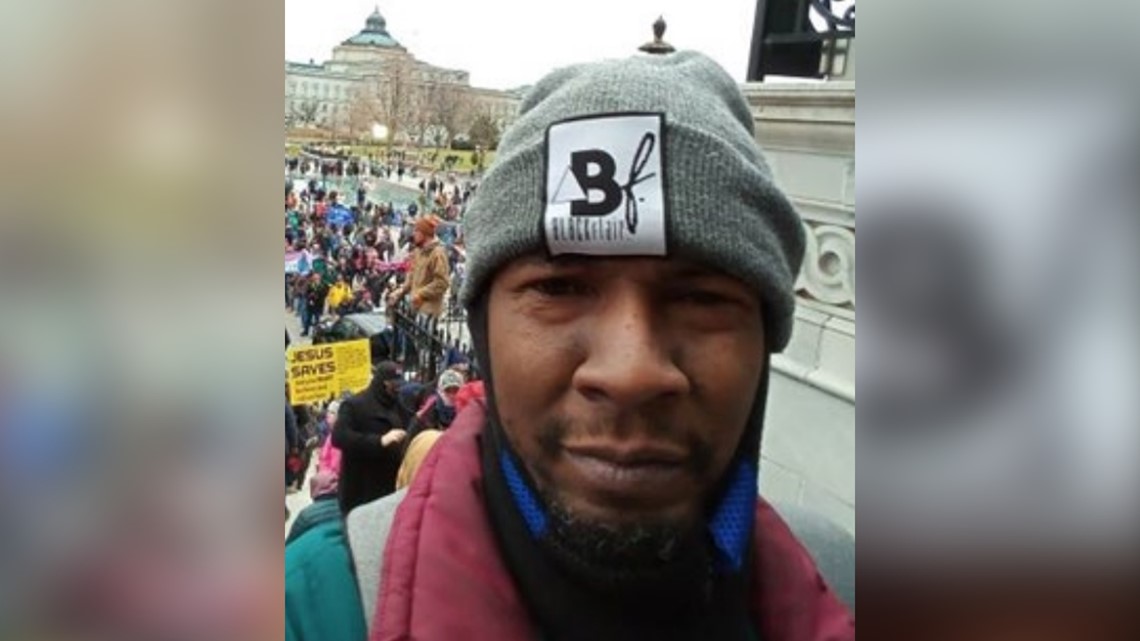WASHINGTON — A federal judge sentenced one of only a handful of D.C. residents charged in connection with the Capitol riot to 28 months in prison Tuesday – marking the first time a misdemeanor Jan. 6 defendant has received more than a year behind bars.
Darrell Neely was convicted in a bench trial in May of five misdemeanor counts. Prosecutors said the radio and YouTube broadcaster had spent more than an hour inside the U.S. Capitol on Jan. 6 and stole four china plates, as well as multiple items belonging to a Capitol Police officer, including the jacket bearing his badge. U.S. District Juge John Bates, who presided over the trial, acquitted Neely of a felony count of civil disorder.
Although the misdemeanor charges Neely was convicted of carry a maximum statutory penalty of one year in prison, prosecutors asked Bates to sentence him to 33 months behind bars. They argued his lengthy criminal history, which includes a domestic violence case, his decision to abscond from D.C. while he was on pretrial release and his lack of remorse warranted nearly three years in prison.


Bates, a 2001 nominee of former President George W. Bush, explained in court Tuesday that to give such a prison term he would have to use what’s known as “stacking” – or consecutive sentences. Prior to Tuesday, no judge had ordered consecutive sentences in a Jan. 6 case. But Bates said he thought Neely warranted it.
“What really convinces me that the sentences should be stacked… is that criminal history, which is pretty unique among misdemeanors, your lack of respect for the law, which is glaring, and your flight while facing prosecution,” Bates said.
Bates ordered Neely held without bond last year after he failed to appear for multiple court appearances. Neely’s attorneys, Kira Anne West and Nicole Ann Cubbage, asked Bates to sentence him to effectively time-served for the period he spent in the D.C. Jail. West highlighted a number of continuing education courses Neely had completed while in detention, including courses in digital marketing and veterinary studies.
Neely said Tuesday he went inside the Capitol as a journalist because another Jan. 6 defendant initially described in his filings as the “woman in a pink beret” – now identified and charged as Jennifer Inzunza Vargas Geller – told him she would help him interview members of the Proud Boys. Neely also previously alleged, without evidence, that he believed Vargas Geller had a connection to law enforcement. Neely asked Bates to look past his criminal record and sentence him far below what prosecutors were requesting.
“A person’s record is not who they are,” Neely said. “You’re trying to make a person out of a piece of paper.”
Bates ultimately sentenced Neely to 28 months. He said the DOJ’s request for 33 months was excessive, but Neely clearly had been deterred by his previous encounters with the justice system. He also rejected the idea that Neely entered the building as a journalist.
“The encouragement of other rioters is certainly not the conduct of a neutral, uninvolved journalist,” Bates said.
Neely was the first Jan. 6 defendant to receive a stacked sentence, but quickly gained company in that category Tuesday afternoon. Later in the day, U.S. District Judge Timothy Kelly ordered former Proud Boys chairman Enrique Tarrio to serve 22 years in prison for his role in a plot to incite violence at the Capitol and stop the certification of the 2020 election. Because the most serious charge Tarrio was convicted of, seditious conspiracy, carries a maximum sentence of 20 years in prison, Kelly ordered the sentence on a separate count served consecutively to reach 22 years.

